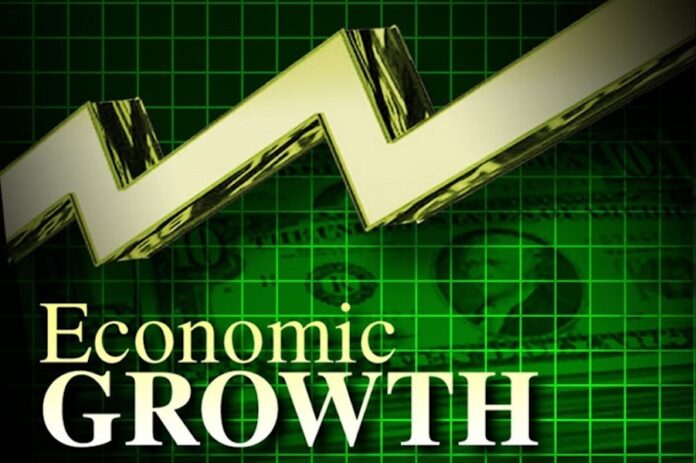Mr Sarki Auwalu, Director and Chief Executive Officer, Department of Petroleum Resources (DPR), says effective synergy between the maritime and oil and gas sectors will drive economic growth in the country.
Auwalu made this known as a guest speaker at the ValueChain Magazine 4th Annual Lecture and Award 2021.
He spoke of on the topic: “Enhancing Effective Synergy Between Oil and Gas and Maritime Sectors for Greater Value Creation’’.
“Without doubt, therefore, we speak today about two sectors whose activities are central to national and global economy and whose strengths can be pulled together for even more opportunities.
“For hundreds of years, the maritime and the oil and gas industries have enjoyed siamese-twin type of relationship, creating and sharing value together.
“As an example, the maritime industry is responsible for hauling oil and gas all around the world while oil and gas has fueled the maritime industry.
“ Imagine that about 700 million barrels of crude cargoes and 22 million tonnes of Liquified Natural Gas (LNG) are transported by over a thousand ocean-going vessels from Nigeria to destinations across the globe annually,’’ he said.
He noted that in 2019, the Nigerian Bureau of Statistics said the value of total foreign trade recorded for Nigeria stood at N36.1 trillion.
According to the director, the figure represented 14 per cent increase over 2018 foreign trade value.
Auwalu said that the maritime industry was responsible for transportation and facilitation of 90 per cent of the trades.
“Meanwhile, of these trades, petroleum and petroleum products account for about 76 per cent of the export.
“Be that as it may, there are constraints, and the need for optimisation is more imperative now than ever.
“ Fuel prices and availability are a major cost-driver in maritime transportation, accounting for as much as 60 per cent of a ship’s operating costs.
“Thus, steady rise in oil prices just as what we are experiencing now, will invariably result in increased freight cost for petroleum and other cargoes and have the potential to significantly undermine the trade.
“Thus, high fuel prices continue to influence new designs for more fuel-efficient ships,’’ he said.
He said that in recognition of the global phenomenon, the DPR was driving availability and, to some extent, affordability of fuels through government’s refinery revolution and private sector-led initiative.
According to him, in addition to the Dangote Integrated Refinery Complex, a number of modular refineries have been inaugurated or are being developed to shore up product availability in-country.
“The increased capacity of 750,000 refining capacity in the short-to-medium-term is a significant step to guarantee affordable fuels to ships/ marine vessels that come to the Gulf of Guinea for trade.
“The department, being an opportunity house and business enabler, has continually worked to reduce the erstwhile high barrier to entry in the refining business, and improved integration with established supply chain.
“ In addition, the department has gone ahead to pre-validate/ approve the technologies and processes of licensors and OEMs in a bid to cut the licensing/ approval timelines,’’ Auwalu said.
“Significantly, the DPR has enhanced the Marine Petroleum Products Retail Operations (MAPPRO) popularly known as “bunkering”.
“This measure is to ensure that Nigeria becomes the principal MAPPRO hub in the region.
“To this end, an international bunkering conference will be held in the coming weeks to showcase Nigeria’s capacity and capabilities in this respect as well as attract investments and partnerships from across the world.”
He called for engagements and collaborations with relevant stakeholders in top gear to make the conference a landmark event that would put Nigeria on the global map for marine products retail operations.
On security and surveillance, he said that oil and gas and maritime industries had a lot in common to share.
He noted that of the 31 crude oil and gas terminals, 26 were offshore in the form of Floating Production Storage and Offloading and Floating Storage and Offloading vessels.
“Accordingly, offshore production and exports and the associated maritime operations, remain at the centre of the Nigeria oil and gas industry.
“To this end, the oil and gas industry has a lot to offer the maritime industry in terms of design and maintenance of offshore installations/ facilities as well as safety and emergency response, together with innovations in digitisation and remote surveillance/ monitoring capabilities.
“The recently commissioned Nigeria Oil and Gas Excellence Center by Mr President provides search rescue and surveillance coordination centre for oil and gas industry which the maritime industry can leverage.
“In a similar vein, the DPR has deployed the Crude Oil and LNG Tracking to Final Destination platform, which complements the National Production Monitoring System to ensure that all petroleum cargoes from the nation’s shores are monitored and effectively tracked,” he said.
Auwalu said that the platform provided credible data for surveillance, security monitoring, product accounting and international trade relationships.
He gave the assurance of DPR’s support to ensure effective synergy that would drive the desired growth in both sectors for value addition.
Effective synergy between maritime, oil sectors will drive growth
RELATED ARTICLES




